There aren’t many household names in farming, and even fewer in organic, but Helen Browning might well be one of them.
We meet at Groundswell, the annual meeting point of regenerative farmers, where Browning – wearing a red silk shirt and gilet, a farming royalty combination if ever there was one – suggests we perch just outside the festival boundaries on leftover fence posts. An inauspicious setting for an interview, but one that means we are out of sight of the many acquaintances and friends that accost Browning as she moves between sessions.
It’s a measure of her long-standing position in sustainable farming, head of the Soil Association’s charity arm since 2011 and with long-standing involvement before that. In a sector that is pulled from pole to pole and tribe to tribe almost on a daily basis, Browning has managed to keep herself, and her sector, very much at the heart of the conversation.
Despite her role as figurehead for organic, the UK’s only legal guarantee for sustainable food and high animal welfare standards, Browning is also notable for having embraced newer iterations of what it means to farm in harmony with nature.
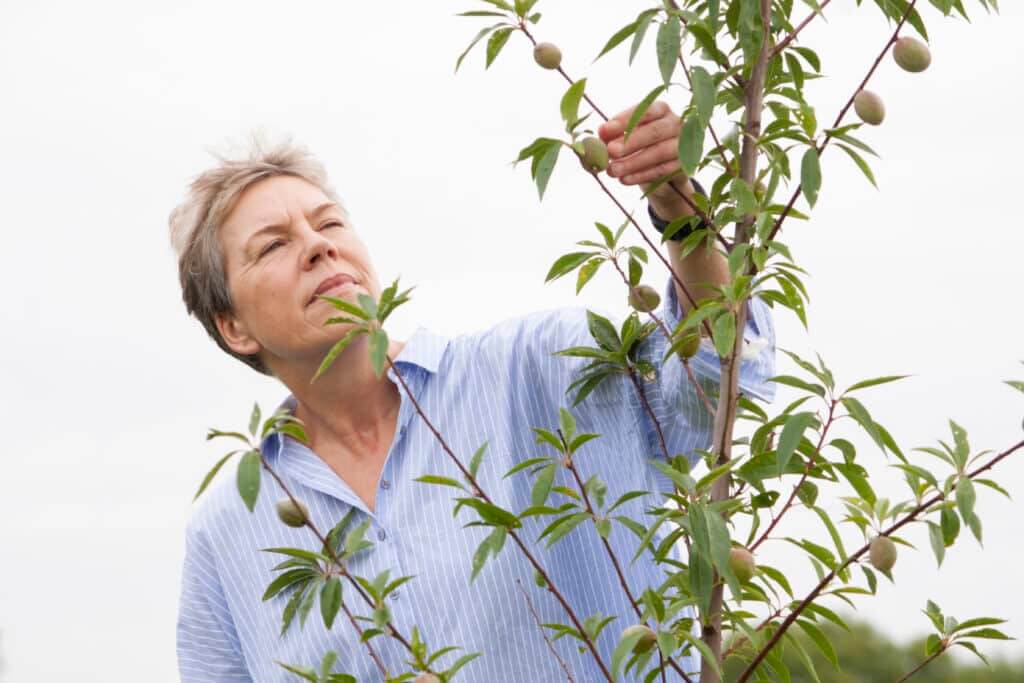
“We’ve got to find the pathway from where farmers are today, to organic and beyond. I’ll use any wind that’s blowing to get us there. And regenerative, at the moment, feels like that wind,” she says, of the hot topic du jour: regenerative farming, its marketing and its potential for farmers.
“A few years ago it felt like local was that thing. Everyone was saying we have to find local, what does local mean? And we did it about natural, particularly in the cosmetic world. So I’m aware these buzzwords come and go, but at the moment there’s some really interesting stuff,” she explains, mentioning a much-attended series of sessions at Groundswell by US regenerative farmer and teacher Nicole Masters, looking at underground mycorrhizal networks.
I will always back organic as the way to give consumers real confidence. We don’t need more labels in the market – consumers are confused enough already.
For those in the know, it’s fair to say organic has faced something of an ideological split in its ranks between the purists, those who maintain that hard boundaries of a certification is the only way to generate true change and avoid greenwash, and those who have opened their arms to other sections of sustainable farming, like Browning.
For those of us less close to the sector, you have to wonder what has held back organic in the UK despite its powerful benefits to nature and climate. It accounts for a fractional 1.7 per cent of the market here, albeit enjoying steady sales growth, and we are way behind other European countries (France six per cent, Denmark 13 per cent).
Certification costs are certainly no easy decision for beleaguered farmers already struggling to make ends meet, but perhaps more influential has been the government’s lack of direct support for the organic sector and proximity to so-called ‘big ag’.
Browning has her own theories and departs very slightly from her neutral, statesmanlike demeanour to suggest one or two.
“I hate to be conspiratorial about it, but you really do have to wonder why policymakers have never got behind organic as a solution to all the world’s problems,” she begins. “We’ve always had a cheap food policy here. I think there has always been an irrational fear of lifting food prices. The retail sector is much more consolidated; the lobbying from the big processors and Cargills and agrochemical companies – perhaps they’ve just held more sway.
“I think perhaps the organic opposition to GM in a country that really wants to bring in GM and GE [gene editing] for such a long time – I think perhaps the fact that organic doesn’t allow them as part of its standards is one of those things.”
She also reflects on the image organic has sometimes harboured as a “closed club” and not something others wanted to join.
“I was talking to a farmer just earlier who had never been in a Soil Association tent until today,” she says. “I don’t want people to feel like we’re unapproachable and it’s a standard too high to adhere to.”
In practice, the organic sector is often much more open to collaboration that perhaps is assumed – something demonstrated by the pioneering Soil Association-run Innovative Farmers network, linking organic and non organic farmers to test on-the-ground solutions to sustainability challenges.
The question of whether regenerative farming is a threat to organic, and whether it should be certified, has occupied enough people this year for it to be given a session at Groundswell. Though it should be noted that what constitutes the different sects of sustainable farming is very far from bothering consumers, who are still far more aware of plastic than they are of pesticides.
Regenerative should become our new baseline. We need to help farmers to get to that point, and for those who can go that extra mile, there’s organic.
“I will always back organic as the way to give consumers real confidence. We don’t need more labels in the market – consumers are confused enough already,” says Browning. “You’ve got organic and you’ve got LEAF if you don’t want to go all the way to organic, and you’ve got Red Tractor if you just want to get off the bottom.
“But I think as a farmer movement, a lot of what the, as they describe themselves, regenerative farmers are doing is really going to help.
“Regenerative should become our new baseline. We need to help farmers to get to that point, and for those who can go that extra mile, there’s organic. And organic also picking up on some of that knowledge and incorporating this into some of our systems and standards, that will be the way to go.”
A farmer’s daughter, Browning took over the arable and livestock family farm, Eastbrook Farm in Wiltshire, and has since made a name for her organic pig enterprise, as well as pioneering one of the largest agroforestry trials in the country. This week, her farm will host the UK’s first ever agroforestry show.
Trees locking in carbon isn’t news per se, but the agroforesters of the country, Browning among them, are looking at how biodiversity, soil fertility and also food production are significant and, crucially, income-generating parts of this novel farming system. She is also trialling a new way of growing arable crops, under the flour brand Wildfarmed’s guidelines and buying programme, exploring how to replace synthetic chemicals with diverse planting to stimulate soil health.
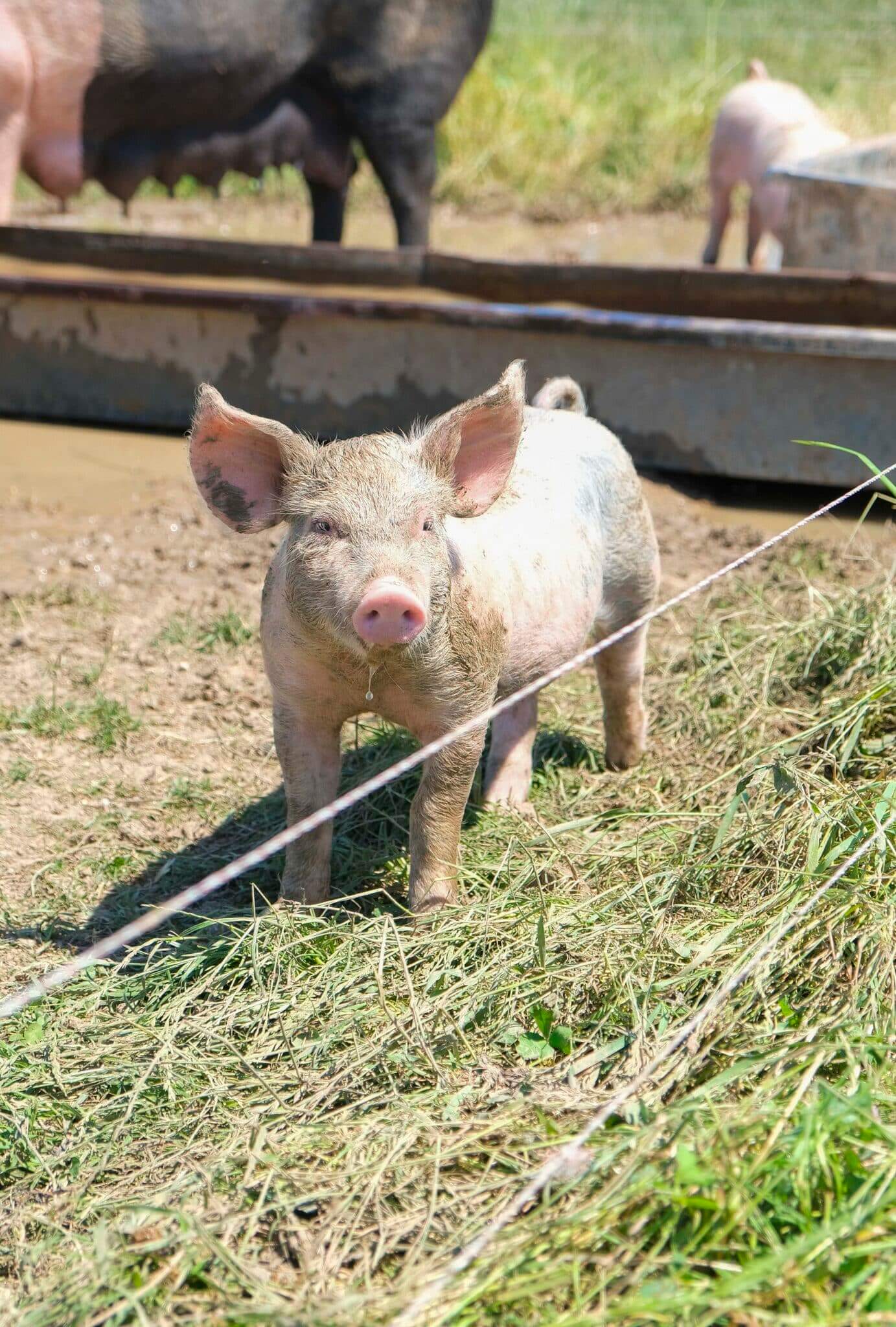
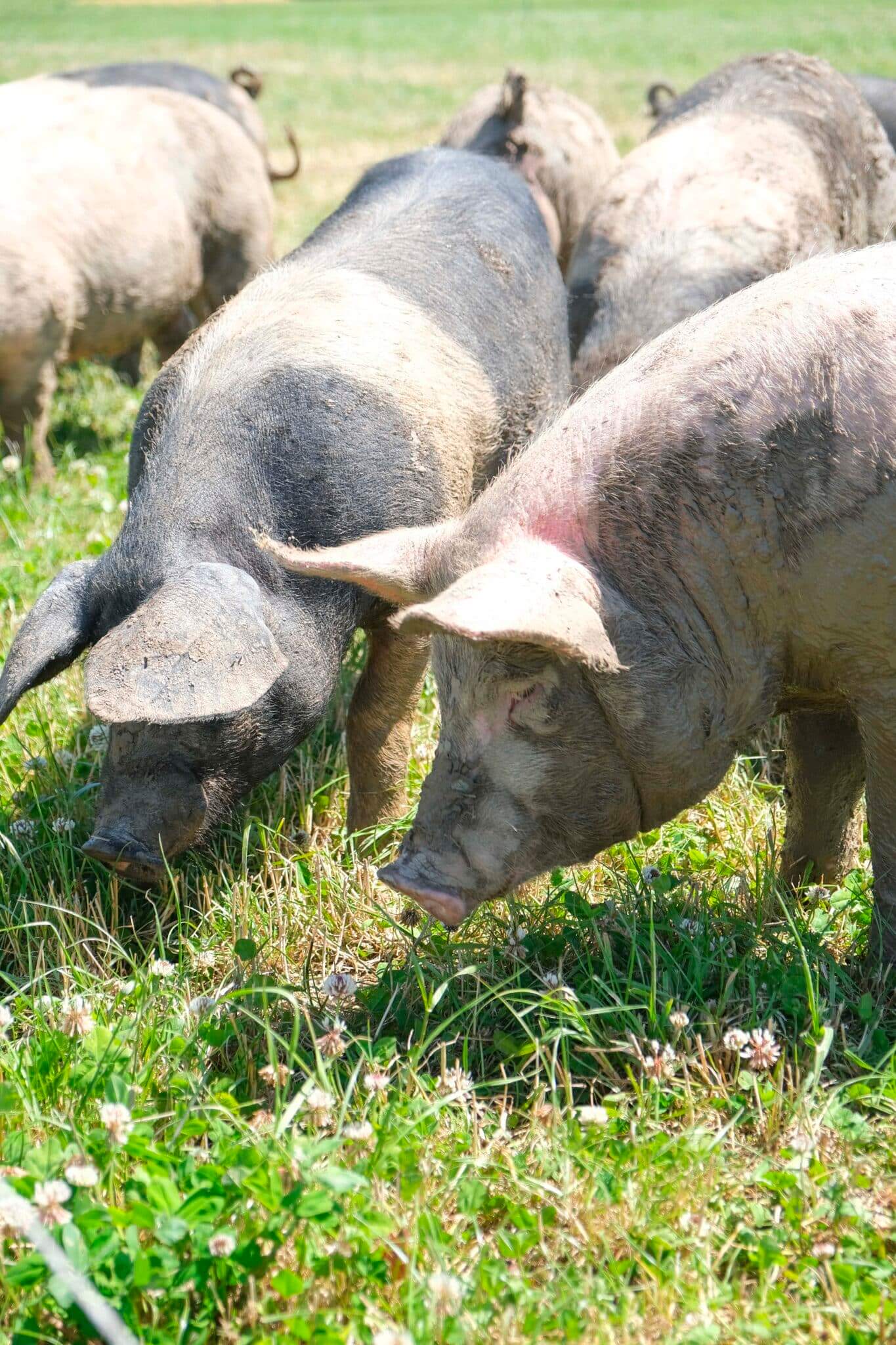
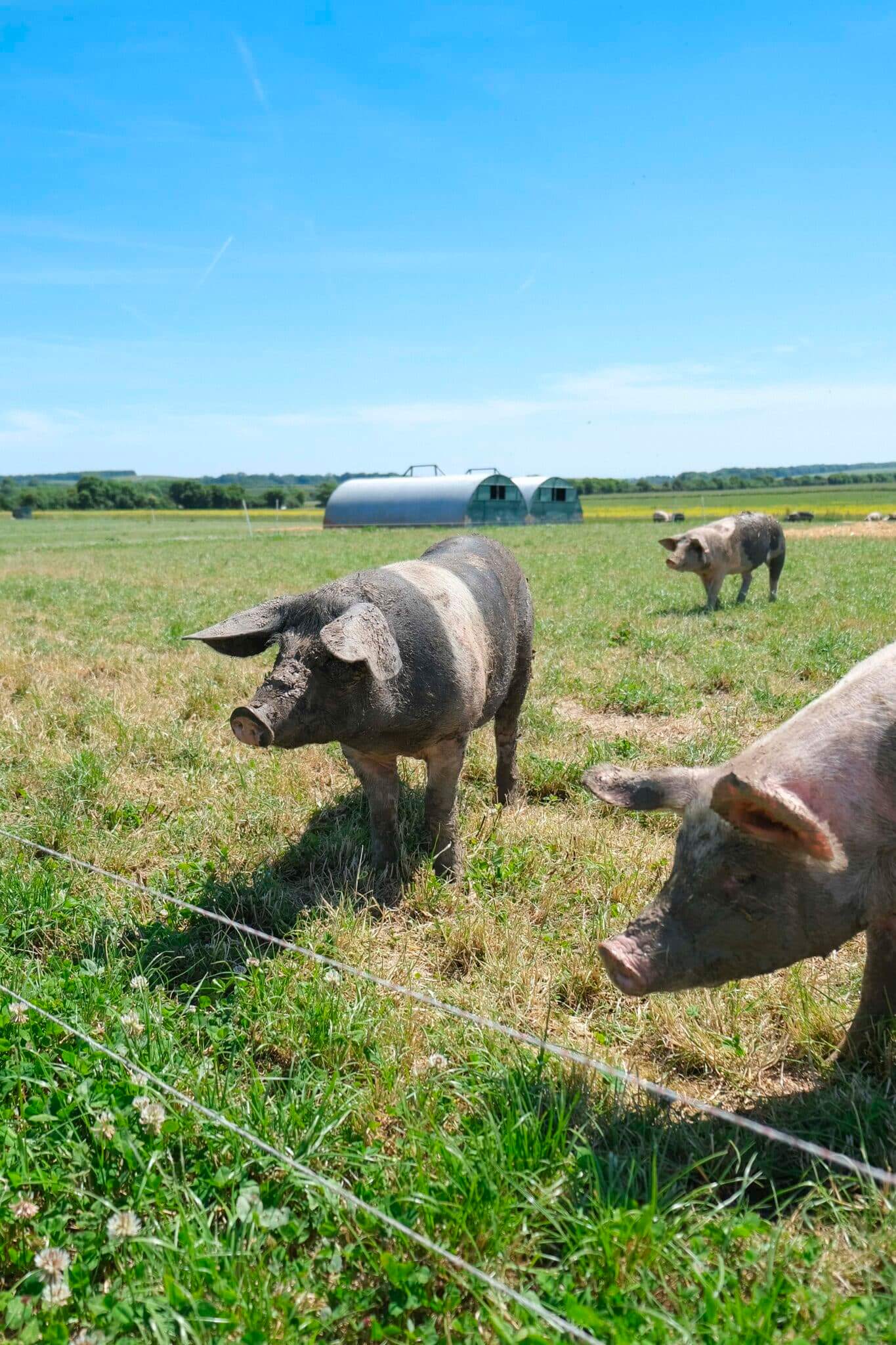
“We’ve got one area that is an expanded forest garden, so nine acres of fruits and nuts, we’ve got soft fruit as an understorey underneath and some veg growing between the rows now,” she says.
As well as the farm, Browning owns the Helen Browning Organics range of pork products, as well as the Royal Oak pub. Both areas, (high welfare pig production and eating out) are facing their respective difficulties. The Soil Association previously certified restaurants as organic but scrapped the scheme over low take up, replacing it with a tiered ‘Organic Served Here’ star rating (Browning’s pub held four stars pre Covid but is not currently registered on the scheme).
On the farming side, organic pork is becoming increasingly difficult to find as a shopper, or justify rearing as a farmer. An environment of low prices in supermarkets is pushing many high welfare farmers out of the sector, and it’s the same story in dairy where farmers are being pushed onto a treadmill of intensification.
While organic has so many of the solutions desperately needed fix our food system, from biodiversity, climate resilient farming and healthy, high welfare food, it’s a sad state of affairs that farmers are physically unable to even consider it on the ground.
But there is no point wallowing over spilt milk, so to speak, and one of the reasons that farming leaders like Browning retain such influence in the sustainable food movement is the optimism and energy to continue, even when things look doomed.
As she puts it: “We can all wait for governments to do stuff. But let’s get on and perhaps become more self-reliant rather than waiting for politicians, because we could wait a very long time.
“The more we collaborate, the more we learn from each other; the less we rely on them to make a better future. Actually that’s what citizen action is, it’s about doing it for ourselves. Rather than expecting them to do everything for us, because they won’t.”
Notes on…Helen Browning
Name: Helen Browning
Job title: Chief executive of the Soil Association
CV: Former director of external affairs at the National Trust, chair of the Food Ethics Council and trustee at the Soil Association
Vocation: Organic pig farmer
Claim to fame: First name terms with fellow organic enthusiast HM King Charles
Pet hate: “I get really frustrated by this whole ‘we’re not prepared to intervene at all on any of the diet and health stuff’ when it’s so clearly costing us massively as a nation.”
Percy Pigs or pork scratchings: “If I had to pick it would have to be pork scratchings.”

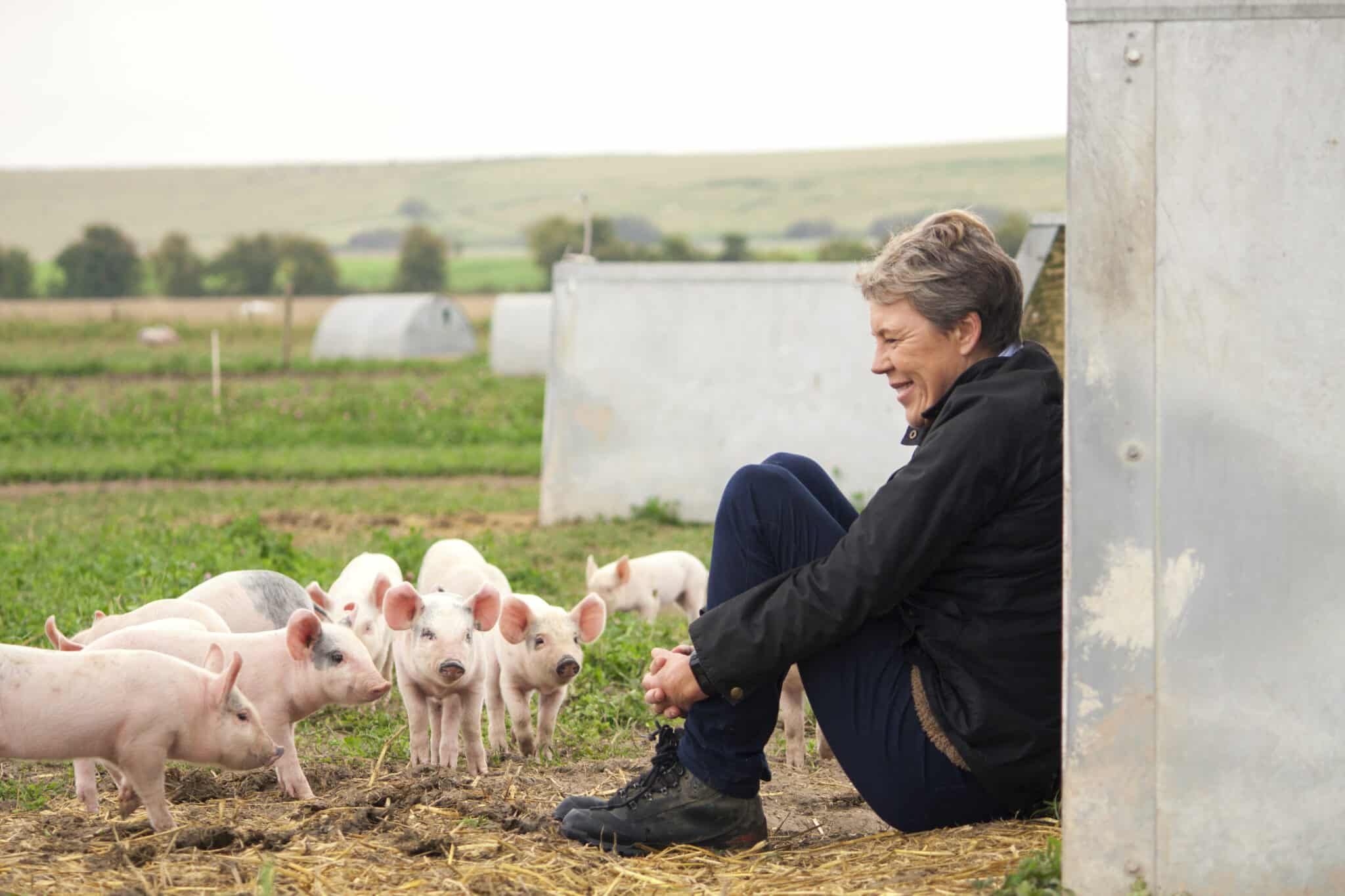







Nothing like a pig to make me smile during difficult times!